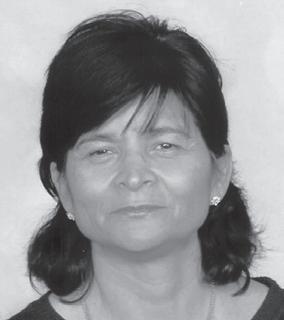
3 minute read
Freedom from fear
from 2010-01 Sydney (2)
by Indian Link
SHAILAJA CHANDRA on the establishment of a new platform to address domestic violence
Imet Billo when she was emotionally in turmoil and struggling legally. Three psychiatrists she had consulted had given the diagnosis of mental illness, confirming that she was incapable of taking care of her one-year-old son and the custody of the child must be given to her estranged husband. Before taking the reports to the court, a thoughtful social worker suggested that she must be examined by a culturally sensitive mental health professional, lucky for her.
Billo came from a prosperous, well educated family of Punjab who married into a family of similar background settled in UK. After the birth of her daughter the family demanded huge sums of money from her parents which was apparently the family custom.
Billo and her family felt insulted by this demand and declined to offer the gift. This resulted in increasing family conflicts and domestic violence.
Billo subsequently returned to India to her parents with her daughter.
Billo’s parents saw an impressive matrimonial ad a few years later from a family settled in Australia. They liked the prospective groom and his family who had no objection in marrying a divorcee with a child. Initially Billo’s family hesitated in arranging the wedding within a week as desired by the groom, too short a time to investigate, but in the end accepted the assurance of the groom and his mother.
Billo’s daughter was happy with her grandparents and she remained with them in India.
Billo started to have doubts about her new husband as soon as she landed in Sydney. With time her suspicions became real as she started to experience mental and physical abuse. Her daily routine of emotional anguish, verbal and physical attacks slowly changed her personality and life. She became depressed, insecure and fearful which was translated by the local health professionals as mental illness.
The timely help of one psychiatric report overturned the previous three. Billo not only got her son back but also her independence and dignity. Today she is living happily with her teenage daughter from the first marriage and her young son, in her own home and fully employed.
Billo’s story is neither new nor single. Countless Billos sacrifice their lives in the fire of domestic violence which does not have any boundaries. Every section of the community around the world experiences this heinous act of violence. It is a complex problem which not only emotionally damages the victim but every aspect of the victim’s personality and life.
Love and positive emotions are the key to all human relationships and happiness. That is why we passionately want to safeguard this invaluable treasure and sometime it results in senseless desire of possession. The worst impact of this tragic situation is on the children of the family who are innocent and helpless.
According to Indian statistics, every 3 minutes a woman is victimised in domestic violence; every 6 hours a newly is raped and 70% of all women in some form experience domestic violence. According to the survey 56% of women believe that under certain circumstances a husband has the right to assault his wife. The impact of violence is worst during pregnancy. Female victims of domestic violence have more children, suffer more from HIV and have 12% higher rate of suicide.
The Indian Government has been pondering on this issue for some years. It has always been vigorously opposed at every level of the society before declaring it a national crime. To address this issue at the international level, the government has taken further steps to stop Non-Resident Indians returning to India to marry and then mistreating their spouse.
Each country has its legal implications against domestic violence. It is widely advertised in Australia to eradicate this shameful social ill. The Indian Government has taken a praiseworthy step through its foreign missions which in Australia is through the High Commission in Canberra and Consulates in Sydney and Melbourne.
The victims of domestic violence are generally women though men are not totally spared. With pressure from their families many young women settled in Australia marry men from India who only finds out the facts on arrival here. This leads to marital discord and domestic violence.
Consul General of India (Sydney) Amit Dasgupta has formed a committee to address the issues of domestic violence at personal level. The committee comprises of legal and mental health professionals. If you know of anyone who may require these services you can contact the consulate or his office through phone, email or post. You can make anonymous contact for yourself or anyone else in confidence. Help can also be sought from your family doctor, police, hospital or mental health facility in your area.
Peace, health and happiness in the family are our birthrights. They are the strongest foundation for our society, our nation and our future. We must defend these with all our might.
Dr Shailaja Chandra is a practicing psychiatrist with nearly 35 years’ experience

WE GIVE PROTECTION FROM ALL MAGIC










